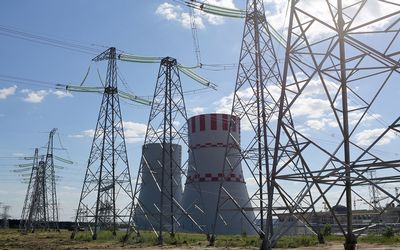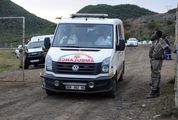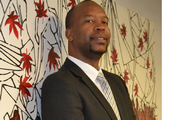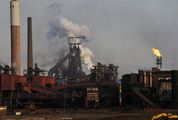FRANCE’s special envoy for the nuclear partnership with SA, Pascal Colombani, says his country’s nuclear energy offering will be differentiated by transparency and compliance with all regulations.
Several nuclear vendors are vying to win the bid for SA’s proposed new nuclear power station programme. Leading them are French state-owned firm Areva and Russia’s Rosatom.
In what appears to be the start of a bidding war, Mr Colombani visited SA this week to meet Energy Minister Tina Joemat-Pettersson and government officials.
The French government has also appointed a nuclear attache who will be based in Pretoria.
During the past two years public perceptions have been created that the Russians had stolen a march on their competitors. But Mr Colombani said he did not think there was "a done deal" with Russia.
"The Russians are serious contenders, but we are convinced that our offer will be better than what they can offer. We are extremely strict on compliance, ethics and transparency," he said.
At the end of last year the Cabinet approved the decision to call for proposals for the construction and financing of nuclear energy.
In his state of the nation speech last week, President Jacob Zuma said the plan was to "introduce 9,600MW of nuclear energy in the next decade".
However, he said that SA would "test the market to ascertain the true cost of building modern nuclear plants" and "will only procure nuclear on a scale and pace that our country can afford".
In a similar vein to what Rosatom has offered, Mr Colombani said the French offering would involve a genuine partnership in which skills and technology transfer took place and in which South Africans achieved "complete mastery" of the technology.
The ownership and financing model would require SA to have full sovereignty of the project at all times and would require that the South African government contribute both equity and debt. France, through its export credit facility, would be able to finance much of the borrowing, he said.
But like his Russian counterparts, Mr Colombani could not be persuaded to reckon on a price.
"It is too early to announce the cost. It depends on what the tender documents say," he said.

Pylons carry electricity power lines past cooling towers at a unit of Rosatom in Novovoronezh, Russia. Picture: BLOOMBERG
FRANCE’s special envoy for the nuclear partnership with SA, Pascal Colombani, says his country’s nuclear energy offering will be differentiated by transparency and compliance with all regulations.
Several nuclear vendors are vying to win the bid for SA’s proposed new nuclear power station programme. Leading them are French state-owned firm Areva and Russia’s Rosatom.
In what appears to be the start of a bidding war, Mr Colombani visited SA this week to meet Energy Minister Tina Joemat-Pettersson and government officials.
The French government has also appointed a nuclear attache who will be based in Pretoria.
During the past two years public perceptions have been created that the Russians had stolen a march on their competitors. But Mr Colombani said he did not think there was "a done deal" with Russia.
"The Russians are serious contenders, but we are convinced that our offer will be better than what they can offer. We are extremely strict on compliance, ethics and transparency," he said.
At the end of last year the Cabinet approved the decision to call for proposals for the construction and financing of nuclear energy.
In his state of the nation speech last week, President Jacob Zuma said the plan was to "introduce 9,600MW of nuclear energy in the next decade".
However, he said that SA would "test the market to ascertain the true cost of building modern nuclear plants" and "will only procure nuclear on a scale and pace that our country can afford".
In a similar vein to what Rosatom has offered, Mr Colombani said the French offering would involve a genuine partnership in which skills and technology transfer took place and in which South Africans achieved "complete mastery" of the technology.
The ownership and financing model would require SA to have full sovereignty of the project at all times and would require that the South African government contribute both equity and debt. France, through its export credit facility, would be able to finance much of the borrowing, he said.
But like his Russian counterparts, Mr Colombani could not be persuaded to reckon on a price.
"It is too early to announce the cost. It depends on what the tender documents say," he said.





















Change: -0.30%
Change: -0.18%
Change: 0.76%
Change: -0.49%
Change: -0.93%
Data supplied by Profile Data
Change: -0.67%
Change: 1.59%
Change: -0.30%
Change: 0.00%
Change: 1.65%
Data supplied by Profile Data
Change: -0.33%
Change: -0.01%
Change: 0.15%
Change: -0.07%
Change: -0.44%
Data supplied by Profile Data
Change: -0.12%
Change: -0.21%
Change: -0.39%
Change: -0.39%
Change: -0.40%
Data supplied by Profile Data